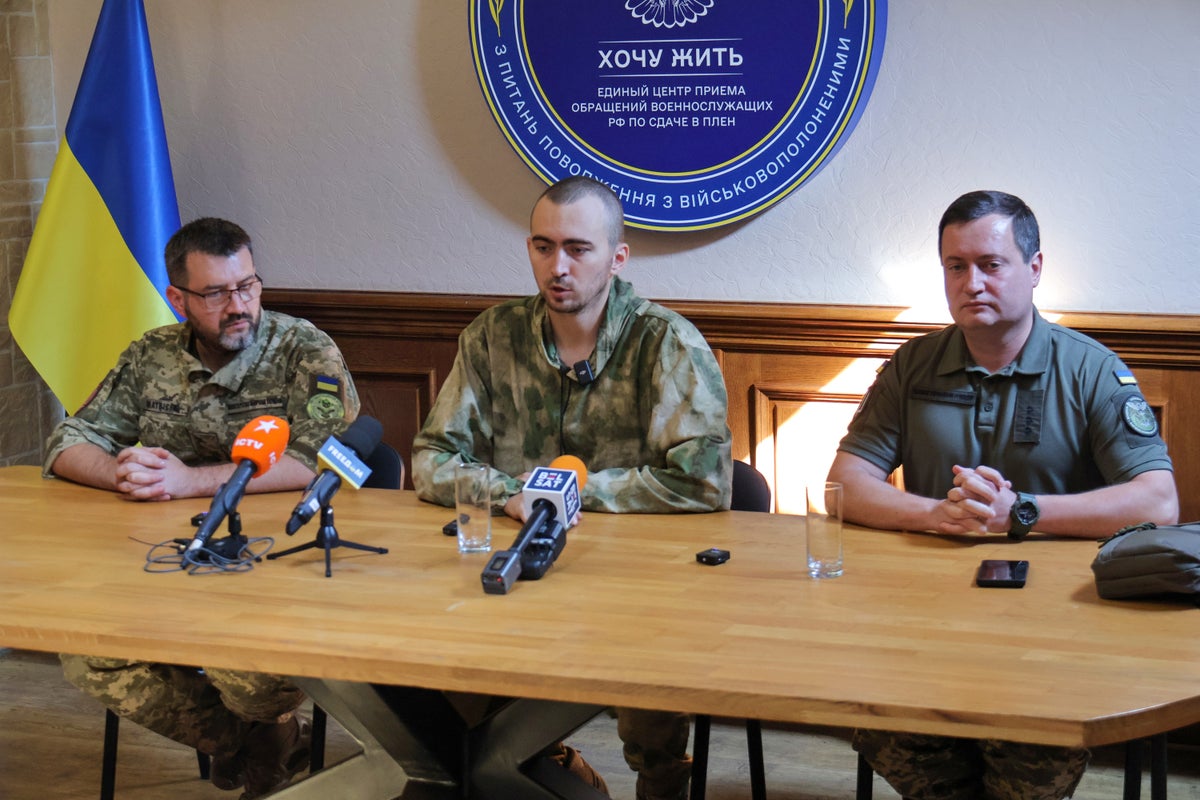
Hundreds of Russian soldiers have defected from Vladimir Putin's army using an "I want to live" hotline set up by Ukraine, military intelligence officials in Kyiv have revealed.
Created just days before Russia's partial mobilisation of 300,000 reservists in September 2022, the hotline has reportedly received tens of thousands of calls and has led to 220 soldiers defecting to Ukraine.
Kyiv's military intelligence unit (GUR), which launched the initiative, said a website that accompanies the hotline has been visited more than 48 million times in 15 months.
Despite Russian forces appearing to have seized the initiative on the frontline as the conflict moves into its third calendar year, the drastic figures reflect a persisting suggestion that morale among Putin’s forces remains low.
Tens of thousands of Russian soldiers have been used in suicidal human wave attacks throughout the 22-month war, most recently in Avdiivka, a key frontline city in the eastern region of Donetsk, and US officials have suggested that some Russian commanders are executing those who refuse to join in.
The latest US intelligence estimates that 300,000 Russians have been wounded or killed in Ukraine since February 2022, a full 100,000 more than the Ukrainian losses.
Towards the end of last year, at least 13,000 were killed in the first six weeks in Avdiivka alone, it suggests.
Captain Maksim Kuzminov, pilot of a Russian military Mi-8 helicopter, who, acting in concert with Ukrainian services, flew the machine into Ukrainian territory in August this year and surrendered to the country’s authorities— (NurPhoto via Getty Images)
According to Vitaliy Matvienko, a spokesperson for the GUR who spoke to the Financial Times, this Soviet Army-style of warfare, where a soldier’s life is worth nothing, has led to an average of three Russian soldiers surrendering via their hotline every week.
He said they had received 26,000 calls over 15 months and were currently processing 1,000 cases.
One of the most recent surrenders, named “Operation Barynya”, involved a Russian lieutenant, Daniil Alfyorov, 27, giving up his commanding post in southern Kherson. He brought with him 11 other Russian troops and provided Ukraine with valuable battlefield intelligence.
Many more Russian soldiers surrendered in Kherson during Ukraine’s successful liberation effort in November 2022.
Another spike happened in March last year, when it was believed that Ukraine’s Western-funded counteroffensive was imminent. There were as many as 3,000 applications, Mr Matvienko said, though in the end, the counterattack did not start until June.
Ukrainian prisoners of war pose for a photo after a prisoner exchange near Sumy, Ukraine, Wednesday, 3 January 2024— (AP)
The hotline is staffed 24 hours a day, seven days a week by 10 operators working from a secret location in Kyiv. All employees are military psychologists and analysts specifically trained to speak to Russian soldiers, due to the complicated nature of the task.
“When an enemy calls you in tears saying that he wants to live, he needs to be calmed down,” Mr Matvienko said.
But the job has tangible benefits to Ukraine beyond simply removing Russian soldiers from the enemy side of the frontline, and the motivation for the psychological operation has likely saved countless Ukrainian lives.
Captured Russians can be swapped for Ukrainian prisoners of war (POW), some of whom will have been subjected to brutal torture. In Ukraine, Russian POWs are treated comparatively better as the authorties work hard to convene to the Geneva Convention on the treatment of POWs, which includes offering three hot meals a day and allowing them to communicate with family back home.
On Wednesday, at least 230 Ukrainian POWs were swapped for a similar number of Russians. It was a feat that Ukrainian president Volodymyr Zelensky admitted was a rare bit of good news.
After their release, Russian soldiers can expect to be debriefed and discharged by the military. The GUR sometimes offers asylum to those that fear they will be killed should they return to Russia.







